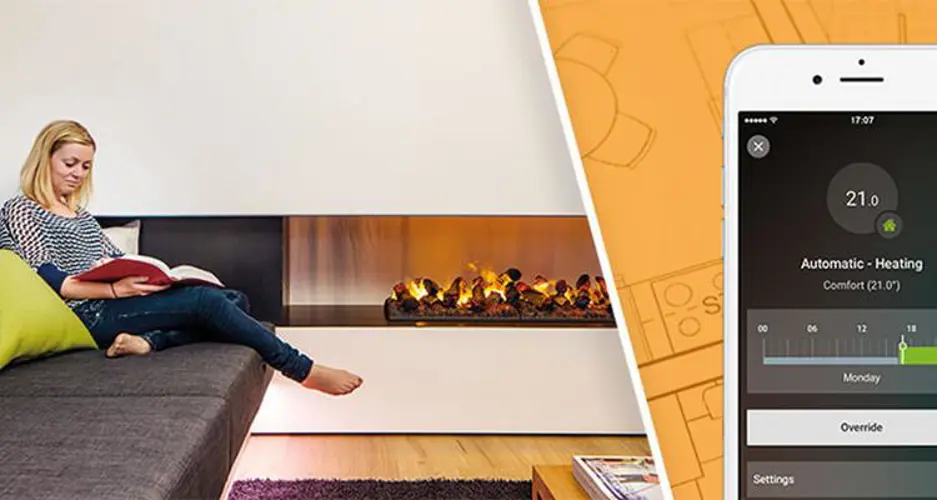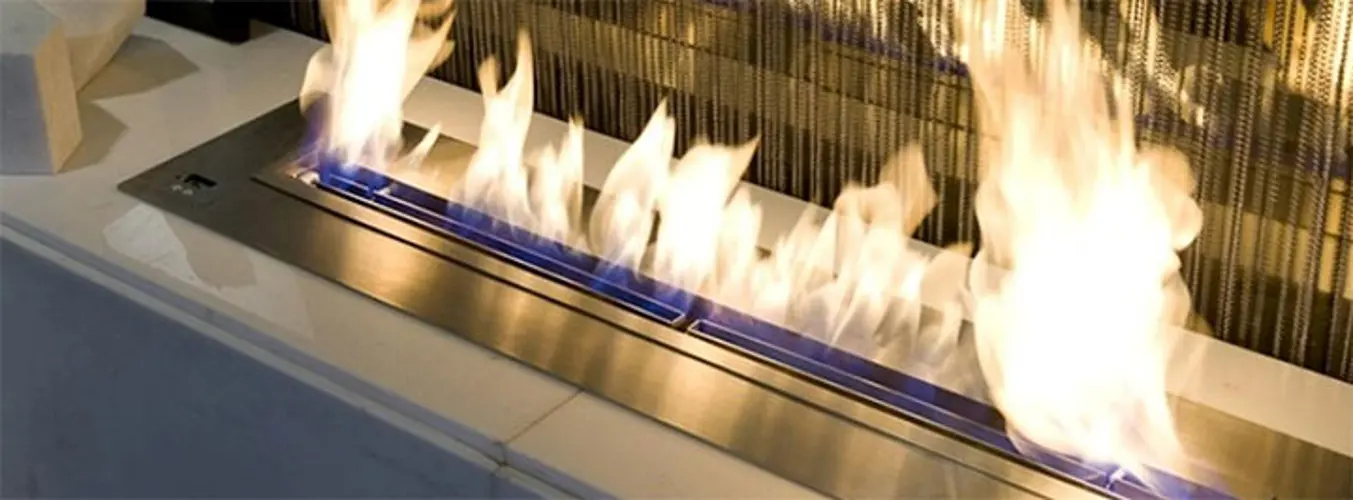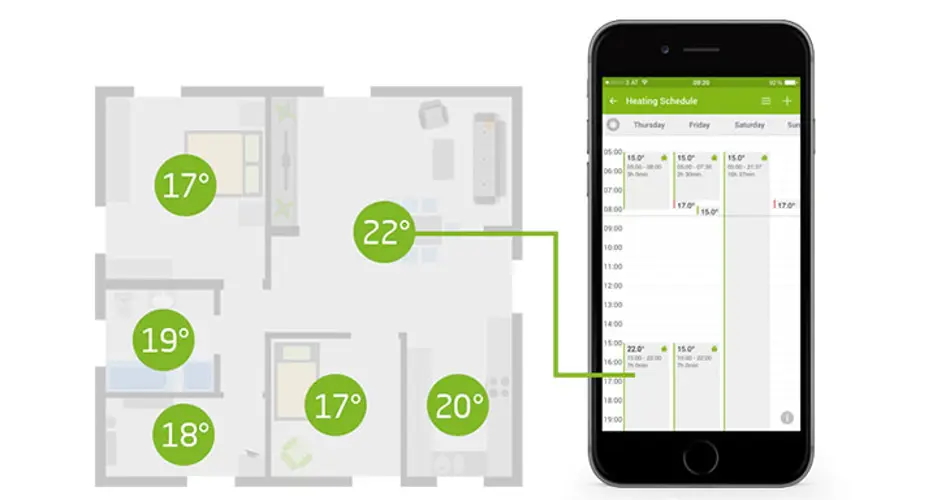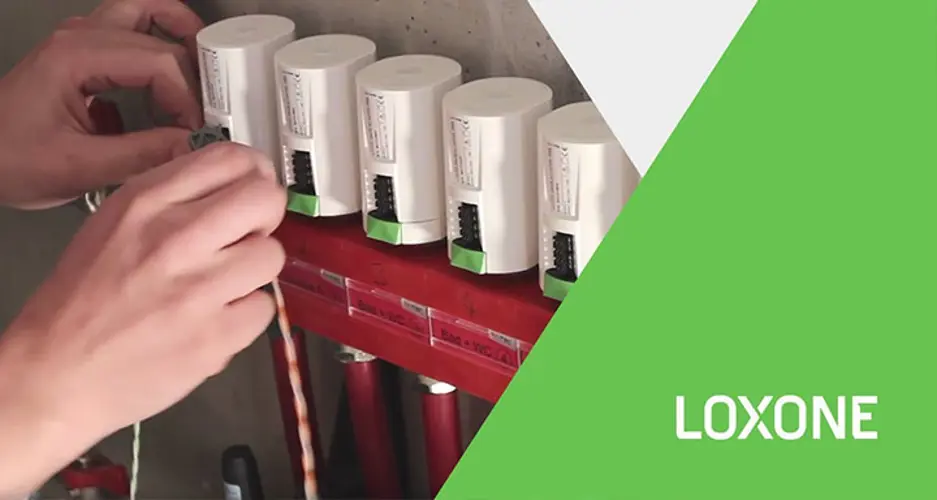Smart Heating FAQ's

Winter is coming, and no I am not quoting Game of Thrones, winter really is happening. It is that time of year, the boilers waking up from its dormancy, and the slumbering radiators began to sputter once again.
While the summer season waves goodbye one more time, we must get ready for the chilly winter. That’s why Home Automate has pieced together this blog to can answer a few common questions about smart heating.
But first, what is smart heating?
In order to answer that question, we first need to talk about Smart Heating and what it means. If we google it, chances are a lot of different things including smart thermostats have popped in our screen by now.
These smart thermostats will grant you the ability to control the temperature of a room via an easy use of an app. In addition, these apps allow the user to turn the heating off and on, whilst offering an adjustment function to the preferred temperature.
The market, of course, comes with more advanced and technological products but the smart thermostats do offer control over your heating compared to the traditional boiler and thermostat setup if you are looking for a more simple and cheaper approach.
However, Smart Heating can be way smarter than a thermostat with a digital screen.

But what is so different about Smart Heating and Zoned Heating?
Many people know zoned heating is commonly called multi-zone heating, it is a smart type of heating that offers greater control and better results, allowing single rooms temperature to be controlled to the setting desired, at any particular time of the day all via automatic technology. This is achieved by the use of smart thermostatic radiator valves, helping you save energy and money by heating rooms that are not in use. Zoned heating control can be adapted to be time friendly with your schedule, optimising it for the way you use your home and at what times. For example, if you go running in the mornings, the underfloor heating in the room will heat up space and be ready for your return ensuring your shoes will dry quickly, and keep your feet warm.
What are the advantages of owning smart heating over a timed boiler?
Boiler timers work with the idea that heating will only turn on when you are waking up in the mornings, turning off when you go to work and then start back up again before you return home to enjoy a toasty welcome. It makes everything sounds terrific, doesn't it? That is until you find yourself held back at the office for another hour working on a document that you need for the next day. Or maybe you had to run somewhere before you could go home because someone decided to give you a last minute call. During all this time, the house has been heating up unnecessarily with nobody there to stop it, meaning you’ve been wasting energy and soon your bills will run high.
Smart heating, on the other hand, comes with more options and bespoke solutions to help you manage the heating of your home. These systems automatically adjust the heating for you based on previously programmed preferences and learned behaviour.
What we last said can be complicated but it is commonly achieved with the support of motion sensors. For example, If you have been watching your favourite series in the living room until late at night, the motion sensor will detect you, while the heating continues to run and keep you warm until you leave the room, meaning once left unoccupied, your system will deactivate the living room’s heating to become more energy efficient.
Is it just radiators that can be controlled?
Many of the homes in the UK are heating up using only radiators, which means we often all talk about zoning the heating at home using smart radiator valves.
However, more homes come with underfloor heating especially in Europe whereby in Austria it has become a favourite option for new homes (it gets to -20C for them during the winter, can you really blame them?). This means that owning a mini-server from your preferred Smart Home provider can help you manage and control this type of heating. It can also control infrared panels, electrical & convection heaters and HVAC (Heating, Ventilation, and Air Conditioning).

Will smart heating save me money on my bills?
Smart Heating control has become a very versatile and sometimes essential tool to consider for many homeowners that are looking for the best way to save energy and cut down on bills. In contrast, a smart thermostat can only control the temperature on a single room or zone. While this type of heating control can be around £150 annually in saving according to Ofgem, for better and maximum energy and money savings, a multi-zoned heating smart system can be the best option.
(Ofgem in 2014 estimated that a multi-zoned heating system could save up to £400 on the annual dual fuel bill of £1385)
How easy is to install a smart heating control system at home?
There are many different options on the market for smart heating control at home, from the very basic smart thermostat that we have mentioned before to professionally installed multi-zoned heating systems that control your radiators at home, underfloor heating to hot water. (While also considering that they can control other elements at home such as lighting, security and music) Whichever option you go for, we always recommend having a professional advise you and install your Smart Heating control system. Even the wireless networks will require some wiring to connect the boiler to the smart system, which we highly advise to be carried out by a professional and qualified registered electrician.
What components do I need?
To develop a smart heating system, you will need something that controls your boilers such as the Loxone mini-server. These systems will be able to introduce additional components that could control radiators, underfloor heating and of course, some way of tracking ambient temperature via temperature sensors, again, we advise you to work with a professional partner of choice on the installation process to make sure everything runs correctly in the way it should.

Should I go for a wired or wireless setup?
When choosing between wired or wireless, it usually comes down to three things: the type of home you own, your budget, and most important your personal preference. A wired system is the best option for those building a new home, adding an extension or rewiring your property. Optionally, a wireless system can offer greater comfort than a wired network. They can be installed in a matter of hours, and don’t require walls to be opened up to install new cables. But wireless can also have a downside and have limited functionality. While there are many solutions to enable wireless multi-zoned heating, they are not available as a ‘’Do It Yourself’’ option. For solutions such as a wireless smart thermostat, you will need to buy multiple thermostats if you want to control every area at your home.
I want to invest in a smart heating control system, what are the key features I should be on the lookout for?
There are a few key features you want to keep in mind when looking to invest in a heating control system.
- Can you control temperature individually for each room or zone at home?
- Is there any option to creating a heating boost or override?
- Is it a smart system? Can it be programmed to learn how long it takes to reach my desired temperature and start heating to get the right temperature for the time I want it to?
- Are there options for when I am away from home, at holidays or out for town for example, so that the heating will be lowered while I am away from home?
- Is the system intelligent? So, if a window or door are left open, will it recognise not to raise up the heating and try to reach the chosen temperature and waste energy?
- The system includes motion-based heating? So if I remain in a room for longer than I am predicted to, will the room stay warm?
If you have any more questions, speak to Home Automate for more details.